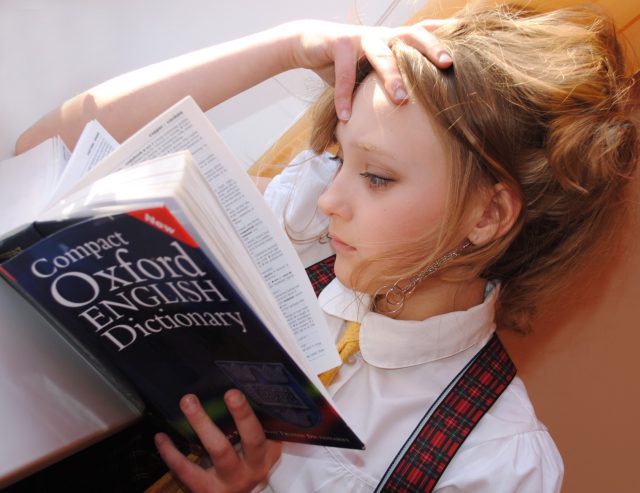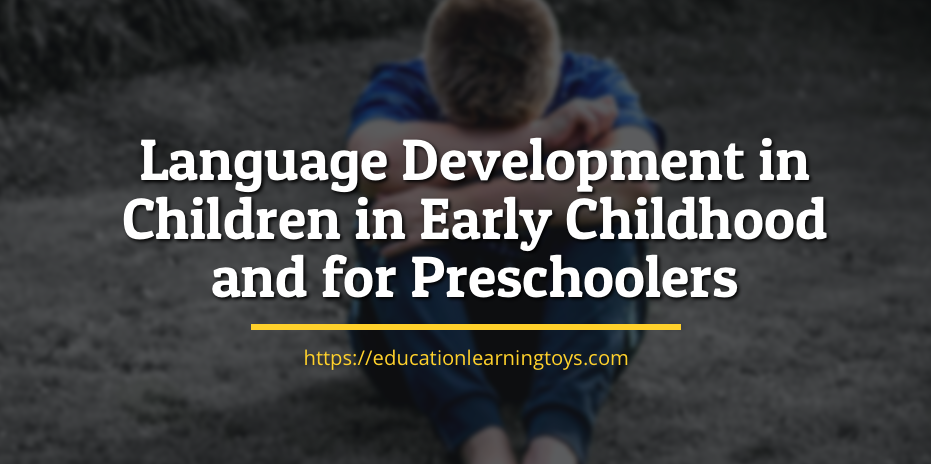Definition of Language Development
Language development starts early in life with babbling, gestures and vocalization. With time children learn words, and letters and to write. Combined with this is cognition of what the words mean and how to form them into sentences to express what they want to say, in a way that they’re understood by others. Language development can involve the processing and understanding of language as well as expressing oneself using it

Language Skills for Preschoolers
When your children are aged 3 or 4 years old, and have not yet started school, their preschool teachers will still be working on developing their language skills. At preschool, your child should be learning to:
- Form sentences that have 6 words or more
- Ask questions, such as: Who? What? Why? And Where?
- Speak and understand over 1,500 different words
- Participate in conversations, and 80% of their words should be understandable
- Link and organize ideas and thoughts, giving justification for their actions
- Understand and follow instructions
- Understand some of the alphabet
- Be able to tell a story
- Sing songs
- Understand about writing
Research on Language Development in Early Childhood
There has been much research into language development in young children, and how they develop language skills, and what may impact upon this. 2009 Research by E.P. Pungello et al, looked at ‘The Effects of Socioeconomic status, race and parenting on language development in early childhood,’ the results showed that language development may depend on the family context.
2014 research by Beverly W. Otto looked at ‘Language Development in Early Childhood Education’ in children from birth to eight years old, and discusses different types of language skills such as phonological, semantic, syntactic, morphemic, and pragmatic language skills, and gives guidance on how these can be developed in the classroom.
In the 2017 Handbook of Child Language there’s a chapter on Early Lexical Development by Martyn Barrett which looks at children acquiring their first words around 9 – 12 months and by the time of being 2 or 2.5 years old, they may have 500 words or more
2014 research by J.B. Tomblin et al, has looked at ‘The influence of hearing aids on the speech and language development of children with hearing loss.’ their research showed that when children with hearing loss used hearing aids this did have a beneficial result and enhanced their interaction.
Meagan R. Talbott et al’s 2015 research looked at ‘Maternal Gesture Use and Language Development in Infant Siblings of Children with Autism Spectrum Disorder’ and highlighted how important gestures are in infants’ early language development.

Types of Language Skills
There are four core types of language skills, which include: listening, speaking, reading and writing.
There are various other tools though that we use to understand and acquire language, including: phonology, morphology, syntax, semantics and vocabulary
Cognitive language skills are about how a person understands and makes sense of the world, and combining this with language and so translating sounds into words to create an output that expresses their understanding.
(https://sharpbrains.com/blog/2006/12/18/what-are-cognitive-abilities/)
(https://www.babycenter.com/0_learning-milestones-language-skills-ages-3-and-4_72275.bc)
(https://link.springer.com/article/10.1007/s10803-013-1820-0)
(http://psycnet.apa.org/record/2009-02701-020)
(https://bln70japt06.storage.googleapis.com/MDEzMjg2NzU1OQ==06.pdf)
(https://onlinelibrary.wiley.com/doi/abs/10.1002/9781405166317.ch13)
(https://jamanetwork.com/journals/jamaotolaryngology/fullarticle/1851413)




